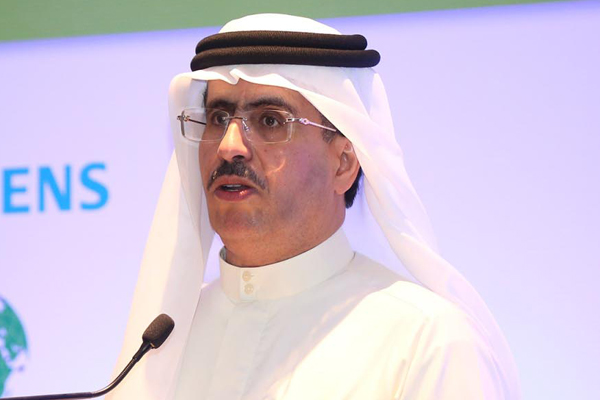 Al Tayer ... commitment to a greener future.
Al Tayer ... commitment to a greener future.
Dubai Supreme Council of Energy has joined the Building Efficiency Accelerator (BEA) partnership, launched by the United Nations (UN), to double the rate of energy efficiency by 2030.
Building efficiency policies can result in 25 to 50 per cent reduction in energy demand from both new and existing buildings, saving money and reducing pollution, said a statement.
“Dubai adopts a clear vision based on sustainability, and develops plans and objectives according to the highest standards of efficiency. Through the Dubai Clean Energy Strategy 2050, we are working to diversify Dubai’s energy mix and increase our use of clean energy sources. We work to enhance innovation and creativity in renewable energy, sustainability, and the environment, while promoting energy efficiency as the key to reducing the carbon footprint of each individual, transforming Dubai into the city with the lowest carbon footprint on Earth,” said Saeed Mohammed Al Tayer, vice chairman of the Dubai Supreme Council of Energy.
“Dubai is one of 12 new cities to join the BEA programme, making a total of 23 cities. This reflects our commitment to a healthier, more productive, and greener future. By joining BEA, Dubai now has access to a global network of 30 businesses, government organisations, and technical experts who specialise in improving building energy efficiency. BEA supports local collaboration and planning to improve buildings, lower energy costs and make people more comfortable and productive at home, and in the workplace,” added Al Tayer.
Dubai is committed to speeding up the implementation of BEA, to reduce emissions caused by the building sector, while monitoring its progress. Measures will include updating policies and building codes, developing more creative techniques to enhance efficiency, rehabilitation of existing buildings such as hospitals, schools, and government buildings, and setting regulations for energy use within buildings. The building sector accounts for about one-third of global energy use and one-quarter of greenhouse gas (GHG) emissions. Building efficiency is one of the most cost-effective ways a city can reduce its GHG while benefiting the economy. For every $1 invested in efficiency, $2 are saved in new electricity generation and distribution costs, the statement said.
"The BEA is an important programme for Dubai to achieve the Dubai Integrated Energy Strategy 2030 to reduce 30 per cent of energy demand by 2030 and the demand side management programmes including building retrofit, particularly in energy security, and renewable energy,” said Ahmed Buti Al Muhairbi, secretary general of the Dubai Supreme Council of Energy.
“We are pleased to join BEA, which will help to foster a culture of efficiency in existing and new buildings through best practices and learning from other city experiences to ensure a sustainable environment for future generations," added Al Muhairbi. - TradeArabia News Service





















_0001.jpg)


.jpg)
















.jpg)








.jpg)


